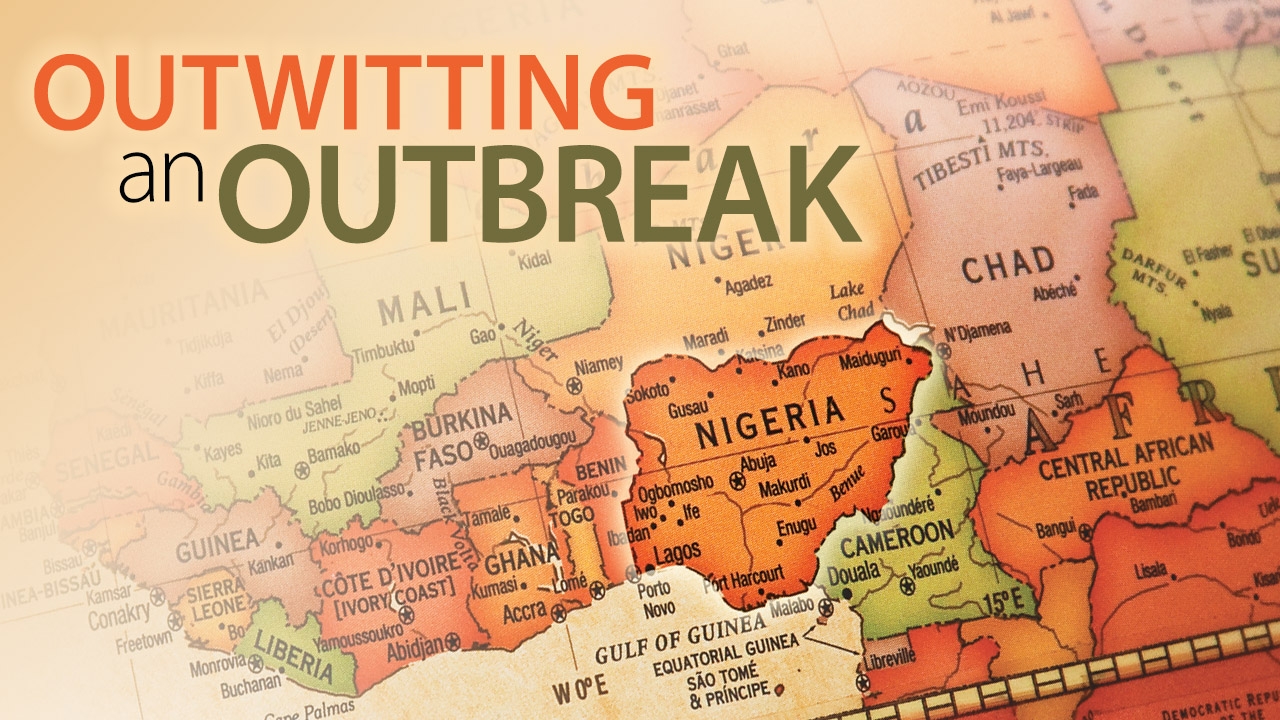When an ill air passenger brought Ebola into Nigeria in July 2014, fears ran high over the toll the virus could take in Africa’s most populous country. But lessons learned at UAB helped Faisal Shuaib, M.D., Dr.P.H., lead a coordinated response that quickly contained the disease’s spread.
Shuaib, a 2010 graduate of the UAB School of Public Health’s Dr.P.H. program in international health, is incident manager and head of Nigeria’s National Ebola Emergency Operations Center. “I’m accountable for ensuring that functional outbreak response systems are established to contain Ebola in Nigeria, and I’m in charge of establishing a comprehensive system that provides quality diagnosis, treatment, care, and follow-up of Ebola patients, their contacts, and their families,” he says.
 Faisal Shuaib led efforts to prevent Ebola's spread throughout Nigeria.
Faisal Shuaib led efforts to prevent Ebola's spread throughout Nigeria.During the course of the outbreak, Shuaib says the country recorded 19 confirmed cases, with the final cases occurring in August in Lagos and Port Harcourt, two of Nigeria’s largest cities. The World Health Organization officially declared Nigeria’s outbreak over in October.
“Despite this progress, we are not letting our guard down; there is still a lot of work to be done,” Shuaib says. “We have to continue active surveillance for Ebola in health facilities and communities. As long as the disease rages on in other West African countries, there is always the risk of importation. Therefore, screening of incoming and outgoing travelers is ongoing in all ports of entry, including airports, seaports, and land crossings. Furthermore, social mobilization to increase awareness is being sustained.”
Shuaib’s experience could help shape solutions for future outbreaks. The director-general of the World Health Organization recently appointed him to serve on a six-person international panel that will assess the global response to Ebola.
Tools for the Challenge
Shuaib went to medical school in Nigeria, but he says his UAB training provided the additional tools needed to meet the challenge of leading such an immense effort. “I especially benefited from the focus on tropical infectious diseases, during which I learned the essential principles and practices related to the epidemiology and containment of viral hemorrhagic fevers like Ebola,” Shuaib said.
Coursework in tropical infectious diseases introduces students to major diseases of public health importance in tropical countries and around the world, says Pauline Jolly, Ph.D., M.P.H., a professor in UAB’s Department of Epidemiology who taught Shuaib. “Along with our UAB experts, we bring in experts annually from the Centers for Disease Control and Prevention and Tulane University to lecture on Ebola, Lassa, and other hemorrhagic fever viruses,” she explains. “In class, we discuss infection-control strategies, as well as social problems encountered during outbreaks. Dr. Shuaib was well aware of the need to inform the public, to gain their trust, and to set up isolation and supportive treatment facilities to help people recover if he were to successfully contain the outbreak.”
Shuaib, who also is a key figure in Nigeria’s polio eradication efforts, came to Birmingham after hearing about the School of Public Health from other alumni. “I was impressed with their level of knowledge, skill, and professionalism,” he says. Coming to UAB was “an exciting and rewarding experience. It was a life-changing event because it opened me up to opportunities and a wide range of mentors and friends who have continued to enrich me professionally.”
“His achievement in leading and directing an army of contact-tracing and surveillance teams of more than 1,100 health workers and volunteers, and in containing what could have been the biggest outbreak in West Africa, is nothing short of amazing,” Jolly adds. “The authorities in Nigeria definitely identified the best person for the job.”


